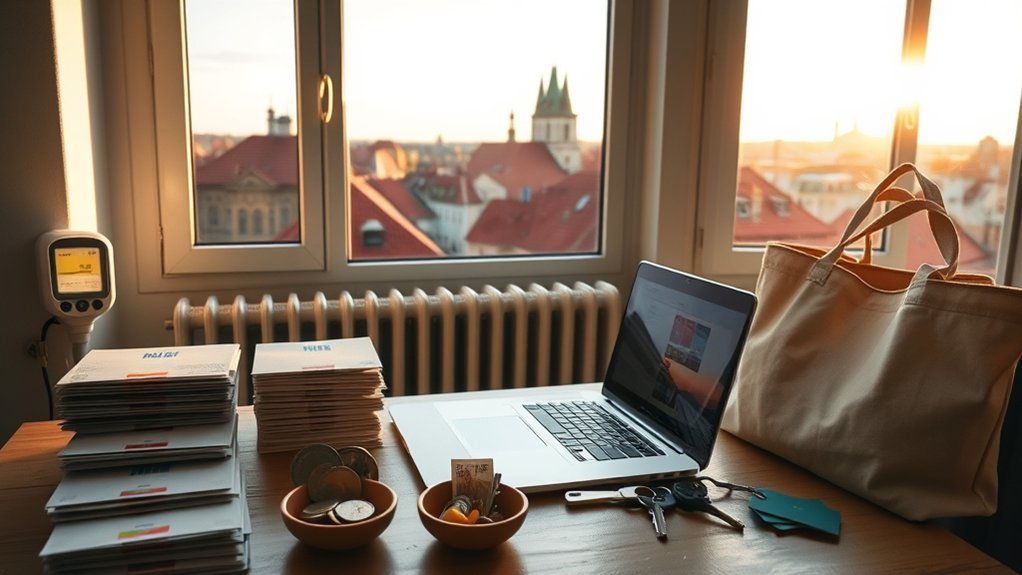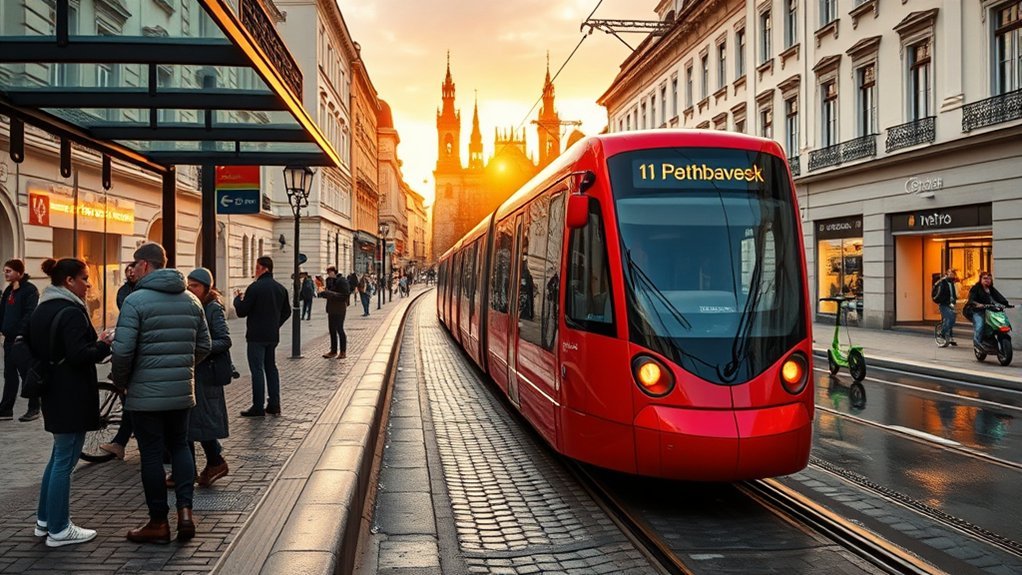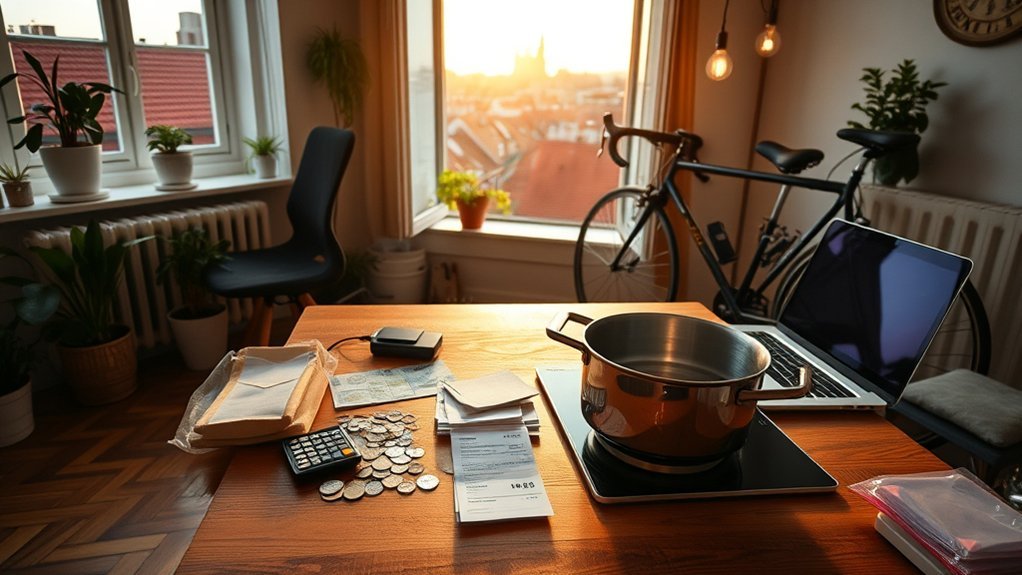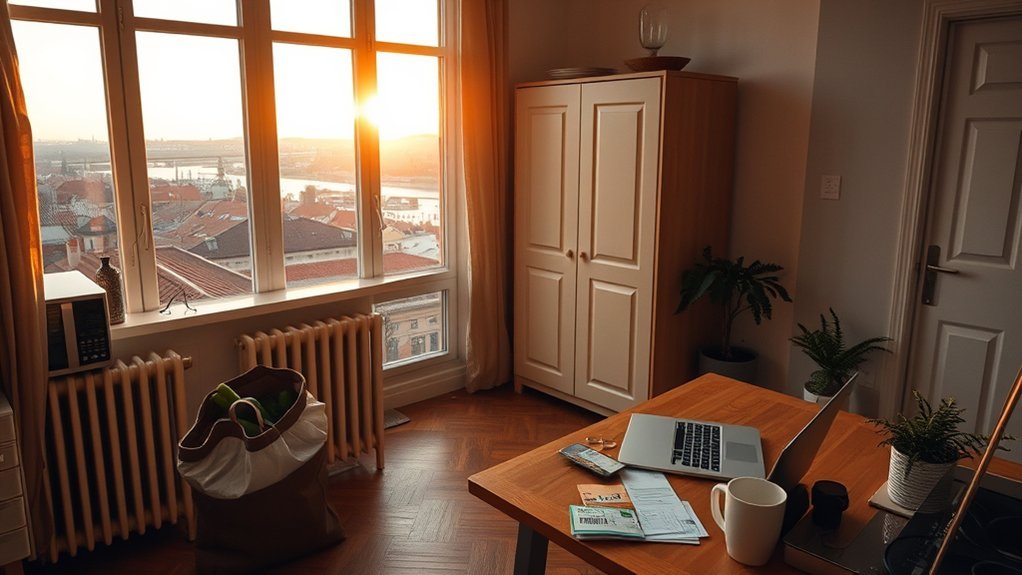Updated on 2025-11-13
You can live well in Prague if you plan around housing, utilities, food and transport. Below are realistic 2025 ranges plus quick ways to trim monthly costs without sacrificing comfort.
For a single person in Prague in 2025, a practical monthly budget is 30,000–40,000 Kč excluding big extras. Expect 19,000–30,000 Kč for a one-bedroom (location dependent), 5,500–7,500 Kč for utilities, ~500 Kč for home internet and ~550 Kč for a public-transport pass; groceries and modest dining fill the rest.
Key takeaways
- City-centre one-bedrooms often cost 22–30k Kč; outside centre 15–25k Kč. Shared flats can halve rent.
- Basic utilities for an ~85 m² flat average 5.5–7.5k Kč/month; home internet ~450–600 Kč.
- Public transport is excellent: one-way tickets 30–40 Kč; monthly pass ~550 Kč.
Monthly Budget Breakdown: Rent, Utilities and Bills
Plan your housing budget around rent plus recurring bills. A one-bedroom in Prague’s centre typically runs about 22–30k Kč/month, while comparable flats outside average 15–25k Kč. Add 5,500–7,500 Kč for basic utilities on an ~85 m² unit, ~500 Kč for unlimited home internet, and ~600–700 Kč for a typical mobile plan. Many landlords charge a monthly advance for utilities (commonly 3,000–5,500 Kč) and require a security deposit of one to two months’ rent. A realistic monthly housing outlay for a centre one-bedroom is roughly 28–33k Kč, and 22–26k Kč outside the centre, excluding one-time deposits.

Tip: compare “base rent” vs. “rent incl. utilities” and confirm how advances are reconciled annually.
Groceries, Eating Out, and Café Culture
Your food spend depends on how often you cook. Groceries keep costs low; frequent restaurants and cafés raise totals. As of Nov 2025, common prices are:
| Item | Typical price | Notes |
|---|---|---|
| Milk (1 l) | 25–30 Kč | supermarket |
| Bread (500 g loaf) | 30–45 Kč | bakery/supermarket |
| Eggs (12) | 65–90 Kč | size dependent |
| Chicken breast (1 kg) | 160–220 Kč | fresh, boneless |
| Cappuccino | 70–95 Kč | café |
| Mid-range 3-course (2) | 900–1,300 Kč | restaurant |
| Fast-food combo | 170–220 Kč | chain meal |
Balance home cooking with lunch menus (meníčka) at 180–250 Kč on weekdays to keep costs predictable.
Transportation and Getting Around Prague
Public transport covers most trips via metro, tram and bus. Single tickets are typically 30–40 Kč (30–90 minutes). A resident monthly pass is about 550 Kč for Prague zones. Taxis and ride-hailing cost more; short central rides often run a few hundred korun.

Public Transport Options
Buy tickets at machines, kiosks or via apps and validate on board. If you take more than ~15 one-way trips a month, the monthly pass is usually cheapest. The city is walkable and bike-friendly; scooters/bike-share help with last-mile links.
Taxi and Fuel Costs
Expect taxis to be notably pricier than transit; use reputable apps for transparent pricing. For drivers, petrol averages ~35–36 Kč per liter (Nov 2025), plus an annual highway vignette if you travel on motorways.
Housing Options: Renting vs Buying
Renting offers flexibility and predictable outgoings. Buying requires larger upfront capital and depends on mortgage rates. Czech mortgage offers in late 2025 typically hover around **~4.9–5.1%** (offer rates), with room for bank-specific deals. Affordability for ownership in Prague remains tight compared with incomes, so many residents rent longer or buy in suburbs/satellites.
| Option | Typical cost | Notes |
|---|---|---|
| Apartment in city (rent) | 22–30k Kč/month | utilities 5.5–7.5k Kč; internet ~500 Kč |
| Cheaper alternatives | 11–17k Kč/person | flat-share, studios, outer districts |
Salaries, Affordability and Typical Living Standards
Budgets feel tight when rent dominates income. The national average gross monthly wage in Q2 2025 was ~49,400 Kč; Prague’s average gross sits higher (low-60k Kč range). A solo renter often targets 60k Kč+ net for comfortable savings, though 45–55k Kč net can work with compromises and shared housing.
Costs for Families: Childcare, Schools and Extras
Public kindergartens are low-cost aside from small contributions. Private preschool and international schools are the big line items, with annual tuition commonly in the hundreds of thousands of Kč per child. Families also budget for activities and occasional private medical visits on top of state coverage.
Money-Saving Tips and Budgeting Strategies

Use Public Transport
- Buy a monthly pass if you’ll make ≥15 one-way trips.
- Use the mobile app or machines and validate your ticket.
- Mix in bike/e-scooter for short hops.
- Check student/senior concessions.
Share Housing Costs
Splitting rent is the biggest monthly saver. In flatshares, confirm what’s included, how utilities are split, and deposit rules. Ask for the utility advance and reconciliation schedule in the contract.
FAQs
How much does it cost to live in Prague per month?
Most singles spend 30,000–40,000 Kč monthly in 2025, depending on rent, utilities, groceries and transport. Shared housing and outer districts can pull you toward the lower end.
What is the average rent for a one-bedroom in Prague?
Expect 22–30k Kč in the centre and 15–25k Kč outside. Flatshares and studios often reduce per-person costs to 11–17k Kč.
Is Prague public transport expensive?
No. Single rides cost 30–40 Kč and a monthly pass is about 550 Kč, which suits most commuters.
How much are utilities and internet?
For an ~85 m² flat, utilities average 5,500–7,500 Kč/month. Home internet typically runs ~450–600 Kč.
Is it better to rent or buy in Prague right now?
With mortgage offers around ~5% and high purchase-price multiples, renting is common. Buying can work if you have a large down payment or target outer districts.


